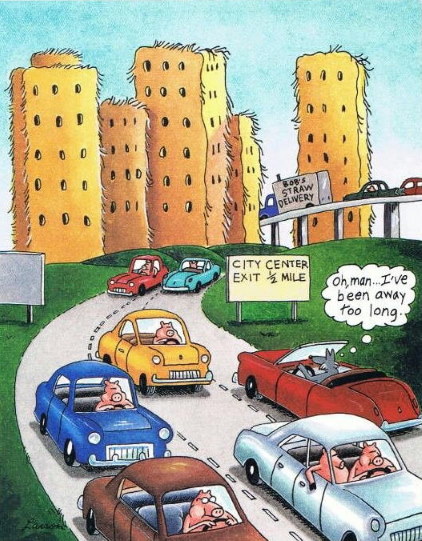 Back to politics, my latest take on Donald Trump is that he's a time traveller from the past. In the movie Idiocracy, a completely average guy from our time goes hundreds of years into the future, and humans have become so stupid that he's a super-genius and the most important man in the world.
Back to politics, my latest take on Donald Trump is that he's a time traveller from the past. In the movie Idiocracy, a completely average guy from our time goes hundreds of years into the future, and humans have become so stupid that he's a super-genius and the most important man in the world.In our world, instead of becoming stupid, we became nice.
Trump comes from a time where if you meet a weaker man on the road, you take all his stuff and leave him in the ditch to be ignored by passers-by. A lot of ancient history was actually like that. Someone from that world, in ours, would marvel at the charity of his adversaries, and the gullibility of his allies.
His downfall was that he never understood us. Deep down, he really believed that if he insulted John McCain enough, Arizonans would recognize him as the stronger leader. That's why he thinks the election was stolen, because he cannot understand how any strategy could win other than absolute ruthlessness.
I do appreciate Trump for being so transparently who he is, and it's the strangest thing that his followers don't see it. People are worried about deep fakes, but one thing I learned in 2020 is that no technology can distort reality better than the human mind.
I think Trump started out cynically exploiting his followers, and together they fell into madness. That madness is an epistemological practice: building your mental model, of the world beyond your senses, as whatever you want it to be, or whatever makes your life feel meaningful.
Philosophically, I'm a pan-first-personist. I believe that reality is fully created by experiencing perspectives, because that's all reality is. But that doesn't mean you can just do anything. We have to share the universe with other reality-creating perspectives, and one thing you can't do, is make other people not real.
When Trumpers say Biden won through voter fraud, what they mean is, they don't think Biden voters are real. And reality creation goes way deeper than other humans. Somewhere I read that shamanic healers say the one thing they have no power over, is a pandemic. So... South Dakota ER nurse recalls how dying patients spend last minutes insisting virus isn't real.]]>